Chief Judge Charles E. Williams, Circuit Judge of the 12th Judicial Court and Steering Committee Chair posed this question for this year’s online discussion. Read his bio by clicking here.
The Question
“Given the past success of the Civil Rights Movement and the modern political progress made in electing our first African American President, Barack Obama, how can we explain the persistence of systematic racial inequality?”
The Response
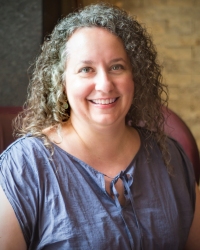
Beth Blickers, Board President at Literary Managers and Dramaturgs of America and Agent at Agency for the Performing Arts
Photo by Joey Stocks.
Read her bio by clicking here.
This potent and paralyzing question made me think of a recent New Yorker Radio Hour podcast with Brian Stevenson. He is a lawyer and civil rights activist and founded The Equal Justice Initiative which published an original study of the history of lynching. During the podcast he said, “The great evil of American slavery was not involuntary servitude and forced labor, I think the great evil of American slavery was the ideology of white supremacy.”
That sentence stopped me in my tracks rather literally as I was making my way through the blustery wind tunnels that make up Columbus Circle in Manhattan. It recalled numerous conversations with artists of color who feel they are asked questions that would never be asked of a white playwright. Why is your character Chinese-American? I don’t know, would you ask a white playwright why her characters are white? A playwright of color recently asked me why white people think people of color only look at their lives through the lens of white people.
As a white person, the best I can come up with is because that’s usually the only lens we ever have to use. I’ve been very lucky that I’ve rarely been made to feel that my status as a woman mattered. I’m more likely to be judged and found wanting because I’m a New Yorker. But because I’m a New Yorker, I simply assume that person is wrong.
But back to my more serious point, if it’s rare for a white person to experience being the “other” in the room, I don’t think it invites a lot of empathy for the experience. When the world has been crafted predominantly by white people, when they are the ones who have led, decided, fought, advocated and determined the major courses of events, it’s a very specific lens.
I grew up in a small town in Illinois, raised in the Lutheran church and was frequently told to live by the Golden Rule and to walk a mile in someone else’s shoes. But it wasn’t until 20 years later when I arrived in New York City that I had the opportunity to walk the walk. To attend my first service at a synagogue. To see a play with an entirely black audience. And let me tell you, the joy in that audience was mind blowing to my inner Lutheran child who was also raised to be quiet and not rock the boat. I loved the exuberant response to the lines praising teachers and mothers. How I longed for someone to have once told me, get noisy!
And since I don’t know how to solve any of the problems facing our nation, especially the ones that deal with racial inequality, I’ll end with a plea to my fellow lovers of theatre. I imagine a fair number of you were also raised with the Golden Rule. You showed up with a casserole when it would help, you visited the bedside of an ailing friend, you donated to a cause that spoke to you or someone you loved. And I imagine a fair number of you were also admonished to speak quietly, be fair, do the honorable thing.
All of those are admirable traits, but I’m going to let my inside voice move outside and invite all of you to GET NOISY. A community speaking on its own behalf must be joined by other communities in order to be heard, to feel heard, to grow the message. So if you are sitting at home contemplating taking action…take action! Write your senator, show up at your polling place, ask a non-white friend what they are feeling in the current climate of this country. And then really hear the answer. It’s perhaps too easy to say listening would be the start of a revolution, but given all of the shouting that’s going on, I would think it’s a good place to start.
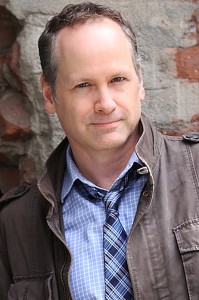
Kenneth Jones, playwright of Alabama Story
Read his bio by clicking here.
All systems begin at the level of the individual, so any systemic or institutional failure (or success, for that matter) has its roots in a personal or individual interaction. All public or political conversations begin with private conversations, which is one idea that I tried to embed in my play Alabama Story. Who lives next door? Are they different than us? How so? Have we tried to walk in their shoes? Looked through their eyes? Talked about our shared histories? The answer is often no, and the reasons for a lack of conversation are many. Sometimes it comes down to the fact that we all lead busy lives and are busy taking care of our own immediate needs. There are bills to pay, careers to be nurtured, kids to be raised. It’s so much work inquiring how someone else lives. On top of that, we’ve all been taught, black and white and beyond, to stay with our own tribe. We’re naturally drawn to the sort of people who were in the sphere of those who raised us. It’s easy to remain passive and stick with the rituals, habits and ideas of our own kind. This leads to the tendency to sit back and let images, sound bites and reports from the media show us who and what our neighbors are.
“Tell me a story” is a repeated phrase in Alabama Story. In a way, it’s a call to action that speaks to the importance of human curiosity and self-education toward the goal of engaging freely and happily in a prosperous world. Indeed, the Alabama state librarian Emily Reed, the moral center of the fact-inspired play, speaks to this in Act Two when she says, “I feel that the free flow of information is the best means to work out problems facing the South, the nation and the world.” The free flow of information in this case refers to access to books and the act of passing books to people. But by extension “free flow of information” is as simple as a conversation with someone you don’t know, asking “What’s it like to be you?” and “What’s your story?”
Look at the character of Joshua, the African-American presence in the play. He’s on a macro-mission to change the system of the South for his people, but throughout the play he’s also actively engaged in a micro-mission to unlock his white childhood friend, Lily, pushing her into exploring more deeply their shared history and her role in their mutual wound. This connection, a kind of talk therapy, is on a personal, one-on-one level. A disciple of Dr. King, Joshua tenderly rather than aggressively urges the revelations of their experience in spite of her many selfish and careless comments borne of her sense of white privilege. The act of sharing our stories becomes cathartic, leading to empathy. To my mind, the world will change only when open-minded and open-hearted individuals face each other — one-on-one — and say, “Tell me your story.” And the news will then trickle up to the body politic.
Of course, as in theatre, the key is not in the telling, it’s in the listening.
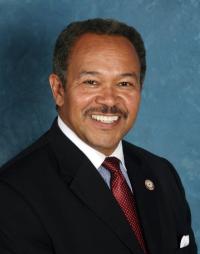
Robert Michael Franklin, President Emeritus, Morehouse College & Director of Religion, Chautauqua Institution
Read his bio by clicking here.
“Leading in an Enlightened Way”
Chief Judge Williams poses a question that should disturb our equilibrium. The question challenges us to acknowledge that we live within two narratives of American identity defined on one hand by astounding racial progress since the 1960s and on the other hand, many frustrating and discouraging expressions of regression.
The current situation is the harvest of seeds planted earlier, mostly by people who are no longer here. Their racist agenda to divide, separate, humiliate, control and oppress is now our status quo. What are we going to do about it?
I believe that our next phase of history must flow from a public to a private embrace of the need for progress in socioeconomic class and racial equality. We now must move beyond law and policy to changes in our personal attitudes, custom, culture and daily practices. Good law expresses our deeply held moral values. We are a great nation, in large measure, because of laws like the Nineteenth Amendment that enfranchised women, the Civil RIghts Act, Voting Rights Act and laws that protect hard working Americans. But, surely we can now see that although law is necessary, it is not sufficient to produce the societal change we should expect as moral citizens.
Speaking of moral citizenship, I believe that we will make progress during this next phase only in proportion to the actions of moral citizens who care about the common good. History shows us that leadership matters and that time after time key moral leaders have guided the nation to a better place.
Abraham Lincoln strove to maintain a unified republic while dismantling slavery. And, breaking with social norms he welcomed the African American abolitionist Frederick Douglass to the White House for advice. Senator Robert Kennedy courageously traveled throughout rural America and discovered the face of poverty, a face that was white and black. He allowed a young, African American female attorney, Marian Wright Edelman, to educate him about child poverty in Mississippi. Then, he used his discovery to work on eradicating it. Eleanor Roosevelt used her prestige and power to call for desegregation in public and private spaces. When the Daughters of the American Revolution refused to allow renowned opera singer Marian Anderson to perform in Constitution Hall, she resigned in 1939 noting that the organization “set an example which seems to me unfortunate,” and that the “DAR had an opportunity to lead in an enlightened way” but had “failed to do so.” Roosevelt and Anderson remained friends for the rest of their lives. Although Major League Baseball didn’t have a law against racial integration, there was a universally recognized unwritten rule that no black players were welcome. That is, until 1945 when Brooklyn Dodges manager Branch Rickey signed Jackie Robinson as its first black player. And, with that simple act, they desegregated our national pastime. And, remember during the 2008 presidential campaign when Senator John McCain firmly and respectfully corrected a misinformed woman who misrepresented President Obama’s religious identity. He did not allow fear, prejudice or lies to distort honest debate and differences of political opinion.
All of these were examples of public moral leadership. All of these great Americans demonstrated courage, integrity and moral imagination. And, we need more of them now.
So, how can we “lead in an enlightened way” as Eleanor Roosevelt put it?
It might begin by identifying areas where change must now occur and then mobilizing leadership and moral imagination to achieve it.
For instance, are there organizations, clubs and social networks where racial integration needs to occur? How would you answer the question, ‘Could my group welcome a black person as a member and friend?
Could my congregation or club or family welcome a person who is different to a cocktail party?
What demands would this embrace of diversity make on me as a person? And for African American and other citizens of color, is there more you (we) can do to prepare all of our communities to embrace new possibilities? None of us is ‘off the hook.’ We are all responsible. This is beyond the reach of law, policy and politics. It reaches into our personal identities, priorities and values.
One of the reasons I was honored and excited by the opportunity to respond to this question is that you are embracing the process that can lead to your renewal as a community. I hope that you will work together on setting goals and initiating processes to achieve them.
At this troubled time in our national life, maybe the Florida Studio Theatre can help other American communities consider how they will lead change for racial equity and inclusion in an “enlightened way.”
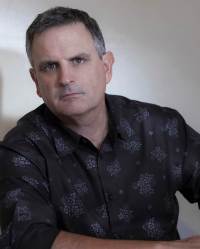
Gilbert King, author of the Pulitzer prize-winning book, Devil in the Grove – Read his bio by clicking here.
Racial inequality is part of America’s DNA. This country was built and prospered on the back of slavery, and we eventually went to war against ourselves because of it. What followed was one hundred years of Jim Crow in the South, massive migration to the North, and the undeniable, systemic oppression of an entire race. Reconstruction Amendments were ratified and Civil Rights Acts were signed into law, but a few thoughtful strokes of a pen could never be enough to undo the physical and psychological damage inflicted on African-Americans, generation upon generation. The election of Barack Obama as president affirmed what we want to believe about America– that legally, politically, economically, socially, and personally, there are no longer any barriers to racial equality. Yet we all know in our hearts that this is not true. Racism is too deeply engrained in America’s core, and it’s inconceivable that the passage of any law, or even the presence of an African-American in the highest office in the land might somehow be the cure. By every measure, we are moving closer to racial equality in America, but only through an honest reckoning of our shared history can we even hope to approach the finish line.

Ed James III, as Candidate for Florida House of Representatives, District 72
Read his bio by clicking here.
Interwoven into the fabric of our great nation is hope in the face of fear; triumph in the face of tribulation; and courage in the face of cowardice. Yet, with all of the great stories of strength in America, we also have terrible stories of disenfranchisement. What makes America great is that it has always been a place of refuge for those seeking solace. Yet, it is important that we challenge ourselves to be better than we were in previous generations. In order to do that, we must accept the fact that we still have improvements to make on this house that we call America before we can truly say that our home is in tip-top shape. If we don’t critically examine every piece of chipped paint, every crack, and and every shattered window in our home then we will certainly be ill-prepared in times of calamity.
In 2016, let us look at Democracy as verb and not a noun. The only way for every American regardless of race, ethnicity, sexuality, physical ability, gender, age, and socio-economic status to truly flourish in this country is for us to take out our toolbox and actively fix the dilapidated areas of our home by ensuring the everyone has a seat at the decision making table. We can’t allow symbolic representation to bamboozle us into thinking that our house is ready for hurricane season. If we can dig deeper, ask the uncomfortable questions, and roll up our sleeves to fight discrimination wherever and whenever it rears its ugly head then our home, the United States of America, will truly be an insurmountable fortress.
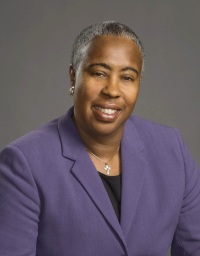
Carolyn J. Mason, Sarasota County Commissioner, District One – Read her bio by clicking here.
In this the 21st Century, I find it very difficult to explain. I, myself am the first African American elected to the Sarasota County Commission in 2008 and re-elected with no opposition in 2012. It is my firm belief that my credentials including my experience on the Sarasota City Commission and my open-minded approach to problem solving played a large role in my successful election then re-election. I strongly believe that in order to overcome any type of racism or any ism especially that of a systemic nature, the willingness to see others as you would want to be seen is key. The willingness to have open honest dialogue is the game changer. It can be painful but it is very necessary if we are to overcome and move forward in a positive way.
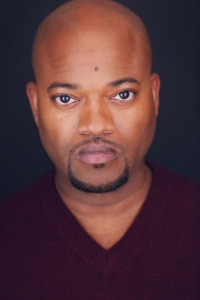
Shane Taylor, actor – Shepard Mallory in Butler
Read his bio by clicking here.
It persists because it is systematic and its origins lie at the very root of our shared cultural experience in this country. Many of the issues that we face regarding race today were birthed during the time of slavery. There has been no resolution, reparation, or fruitful dialog in this country about the cause and long-lasting effects of the institution of slavery and the deliberate dehumanization of a race of people. I am afraid that until that is done in an effective and constructive way, there will continue to be unsettled differences between the races. Certainly we shouldn’t be stuck in the past, but we must look to the past for guidance today. We must acknowledge and deal with the past in order to find a way forward.
Yes, there has been tremendous progress within all areas of life and a multitude of success stories in regards to race. But we must be careful in viewing this as a sign of the eradication of racism in this country. Clearly we are at an apex of racial tension that is on the verge of damaging all the progress we have made. This awakening that we are all witnessing can be the impetus for drastic change within the fabric of our culture. Change is possible only when all parties involved can come to a concensus that change is needed. I truly believe that at the heart of the matter lies a systematic disregard for and lack of understanding of the underprivledged. I remain optimistic that one day we will no longer be in need of forums such as this. It is well within our reach to be equal in all areas of life if we do the work necessary to make that our new normal.

Elizabeth Gelman, Executive Director of The Florida Holocaust Museum. Read her bio by clicking here.
I have struggled with this question. Systematic racial inequality is a many-faceted subject and needs to be addressed through multiple lenses including economic parity, the funding gap in educating students of color and majority white students, and the mass incarcerations and racially-based policing policies in many areas. But while solutions in those areas are vital, solutions don’t get to the core of why there continues to be such systematic racial inequality.
The election of Barack Obama, while important, did not signify a cultural shift in perception of the entire black community. Brittney C. Cooper, assistant professor of Women’s and Gender Studies and Africana Studies, Rutgers University has written extensively on this subject. She says “…it is important to recognize that mainstream acceptance of exceptionally accomplished black people is not an accurate indicator of the racial attitudes of the general populace.”
While we were researching for The FHM’s exhibition “Beaches, Benches and Boycotts” about the Civil Rights Movement in the Tampa Bay – Sarasota area, we kept finding examples of how our local governments did everything they could to ignore, delay or circumvent the new civil rights laws of the land. Told to integrate the school system, they instead built 6 new schools specifically for black students; warned to integrate public beaches, they instead built swimming pools in all-black areas. Why not simply integrate?
Henri Tajfel was a Polish-Jewish student who was sent to school in France just before World War II. When the war began, he joined the French army and was captured by the Nazis. After the war, he found he was the only member of his family to survive the racially-based Nazi enslavement and murder of 12 million people, 6 million of them Jews. This profound event led him to examine the psychological constructs of prejudice and create what is now known as Social Identity Theory. He theorized that stereotyping was based on normal cognitive process; we tend to group things together to better understand our world. But when we do so, we tend to exaggerate the differences between groups as well as the similarities inside the groups. And human beings tend to fear what they do not know.
Our educational philosophy at The Florida Holocaust Museum centers on teaching about the Holocaust and world-wide genocide and human rights issues through individual stories. We look to connect one person to one person, emphasizing the similarities rather than focusing on the differences. We spend a lot of time talking about how we all have the capacity to be perpetrators and victims, rescuers and bystanders. And how people’s innate fear of “the other” continues to be exploited in order to subjugate, brutalize and murder other human beings.
As a white woman born in the 1960s, I grew up in a large multicultural school system in a northern university town. There were large black and Hispanic populations, as well as significant Asian and Indian. I’m not going to say that it was completely idyllic because there were people who played on racial tensions but the social consequences of doing so was high. In short, I grew up in a Civil Rights success story. I do not believe it was a coincidence that my high school was, at the time, one of the top 10 high schools in the country. Systematic racial inequality is not only devastating for those who are discriminated against. It is poison to our entire nation.
So how best to combat this sense of “other?” In the United States, many people live and work in such segregated areas that they often meet few people outside their own “groups.” One of the simplest actions we can take is to get out of our insulated bubbles to meet and engage with people who we perceive as different. I commend FST for taking the initiative and providing ways for people from different backgrounds to learn about each other and learn from one another. But all of us must take advantage of this opportunity and recognize that, together, we have the power to make a meaningful difference in our community through our individual actions. I am not naïve enough to think that these simple actions will put an end to systematic racial inequality or discrimination or racism, but I do believe that they will provide a fertile ground to create consensus and true change.
“And that is how change happens. One gesture. One person. One moment at a time.”
― Libba Bray


Racism persists to a great extent because those who engage in discussuon in the abstract will not agitate or actively engage in a fight against the racism in plain sight, will speak globally but will not a act locally. When for instance a report was issued showing racism against black testers who were denied apartments by leasing agents who are a tually acting on behalf of whites right here in Sarasota, not one white person raised a voice in protest, not one letter to the paper from a resident, not one public action from the N AACP. Whites will not surrender the priviliges they enjoy in a racist system and blacks remain silent to protect what they fear losing or fear not getting from the white power sructure. Whites and blacks alike are conplicit in allowing the persistance of their privilege on one hand and their oppression on the other
I very much agree with the comments about racial inequality being systemic and related to ways in which our society is set up that facilitate othering. Human beings seem inordinately likely to notice small differences: skin color, accent, clothing, food preferences; and to make them a basis of who belongs to a group and who does not – who is in, and who is out. Such trivial differences move into insignificance when one person genuinely knows another, because as individuals we have a great ability to love and appreciate one another. As social beings, however, slight differences combined with not knowing one another easily give rise to othering: that group is not like us – something is wrong with them. Don’t mix. Better to hate them.
Sadly, racial othering has been exacerbated by wealth disparities. Segregation and the legacy of slavery created different communities, often with lower housing values, and less wealth. The less wealth, the less to pass on the children, the less for communities, and the less for schools. This in turn lowers expectations and opportunity. Couple that with pervasive American myth that one makes it on one’s own, and you have a toxic landscape in which many (not all) African-Americans grow up in separate communities with less resources, hence less opportunity (and less resources to seize opportunity) and in turn are blamed for that. Many whites do not have close friends who are black, and vice-versa. And the cycle continues …
We could fix this — education and investment are part of the answer.
Interesting and valuable responses to a very difficult question that has many levels of potential analysis and pointed inquiry. At the deepest level, it perhaps suggests the continued persistence of the “delusion of separateness” where the individual sees himself or herself as isolated and separate from the Source and in competition with all others for the acquisition of his or her own material goals. Alternatively, if I see myself as merely an individuation of a Perfected Personality, I understand that all others are equal to me; unique but none special. Those whose minds focus upon differences instead of similarities will necessarily compare, contrast and rank humans. Self esteem is based upon ideas of supremacy where the Ego is expanded by achievement and energized by conflict. Those who see equality will desire that all have equal opportunity and encouragement to achieve their highest potential to reflect unique expression of the truth, beauty and goodness of the Creator.
I admire all the thoughtfully considered comments here, Gilbert King speaks in an undiluted manner about the facts of this country’s history and how that history has led us to the present day. I am always surprised when people express surprise that racism is still as virulent as it is. It has only been 51 years since the Civil Rights Amendment was passed. That means 51 years since separate but equal, sit-ins, dogs, hoses, and segregation; not even a full life-span. 100 years before that was Jim Crow, and before that, slavery. The belief that the election of Barack Obama signified the country’s abandonment of racial discrimination is laughable in the face of the very fact that it has taken 240 years to elect a President of color, and speaks to how deeply entrenched racial bias is in this country.
After the great gains of the civil rights movement, and since the election of Barack Obama we are seeing, and have seen for 30 years, the systemic effort to disenfranchise people of color, i.e., the war on drugs, mass incarceration, out-sourcing of jobs, cost prohibitive tuitions, elimination of community programs, etc . There are those who would return us to the days of complete second-class citizenship when it comes to education, housing, healthcare, employment and equal justice. The need to prevent the African-American community to fully realize itself financially, environmentally, and intellectually, stems from an unrealistic fear within the majority culture that has existed for hundreds of years. That is, if the black man, or any group perceived as inferior, were empowered, then the majority culture would be endangered and their privilege threatened. Rules and laws change and morph constantly to make sure that never happens. The illusion of ‘other’ or’ different’, and the perpetuation of a human hierarchy must be maintained at all costs. That is why we still find ourselves in this place. That is why it will never change unless there is the continued awakening of the masses and the refusal to perpetuate outdated, antiquated ideals rooted in delusion.
I believe the direct answer to Judge Williams’ question, explaining the persistence of systemic racial inequality, is in Michelle Alexander’s book, “The New Jim Crow: Mass Incarceration in the Age of Colorblindness.” The bigger issue is how to effect change. One answer lies Dr. Franklin’s suggestion that each of us lead in small ways in our own little corners of the world. For example, use your network of friends to help a young person of color with his or her career. (You might need to use your network to identify the young person to help.) Mr. Hunger’s reply reminds us there is still a role for our government. We need to elect individuals who recognize that change is needed, and will work with us to dismantle barriers and create opportunities.
Very thoughtful responses to a most complex question. We are fortunate to have Florida Studio Theatre in Sarasota, pushing us to be a better community.
“Systemic” expressly invokes governmental responsibility for inequality. Whether it’s the private prison system lobbying legislators for sentencing guidelines designed to fill prison beds for profit or social programs designed to keep people dependent to maintain a political base for the politicians who advocate the program, it’s failed government policy which is at the root of most inequality. For inequality to be remedied it requires elected officials to work for all citizens to be successful not dependent. Political policy to empower individuals and not policy to advance their own political self interest.
Excellent comments. We need to understand our past in order to properly respond in the present to adequately prepare for our future.